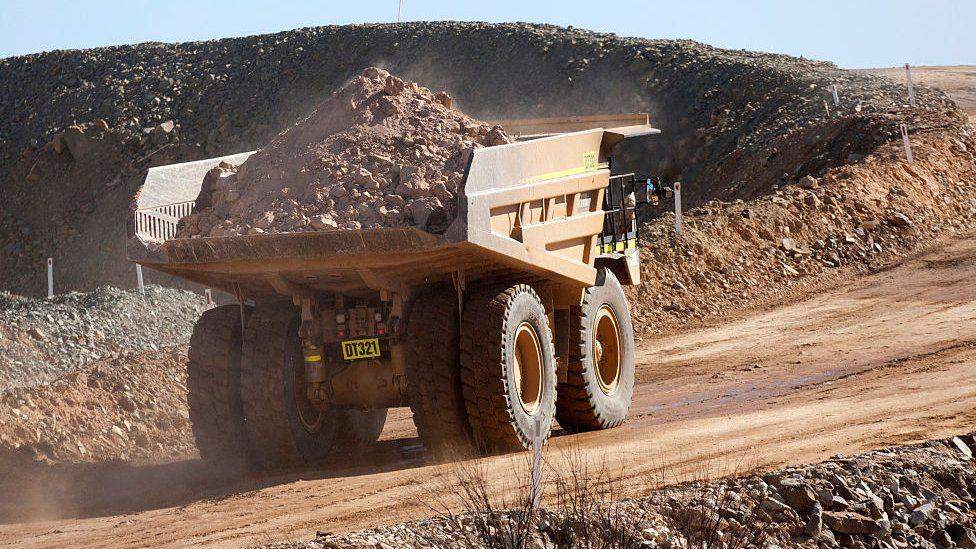Chinese investment in Australia plummets 61%

Chinese investment in Australia plummeted 61% in 2020, the lowest number in six years.
The drop in investment comes amid a growing diplomatic rift between the two countries.
The Australian National University's Chinese Investment in Australia Database (CHIIA) recorded just over $780m (A$1bn ; £550m) in investment.
Only 20 Chinese investments were recorded in 2020, well below the 2016 peak of 111.
Last year's decline came on top of a 47% drop from 2019, when Chinese investment totalled $1.57bn.
Dr Shiro Armstrong, director of the East Asian Bureau of Economic Research, where CHIIA is based, said the decline in Chinese investment in Australia outpaced falling global foreign investment last year.
"Foreign direct investment fell globally by 42% according to the United Nations (UN)," Dr Armstrong said in a media release. "UN data is measured differently, but the fall in Chinese investment to Australia was much larger."
Chinese companies have invested across all sectors of Australia's economy in recent years, but last year they only bought into the real estate ($357m), mining ($321m) and manufacturing ($119m) sectors.
The drop is at least partly due to Australia's investment settings during the Covid-19 pandemic.
The government announced temporary measures in March that would subject every proposed investment to scrutiny by Australia's Foreign Investment Review Board (FIRB).
Previously, a review only applied for "non-sensitive" transactions if the investment was worth $930m, or $213m for investors from countries without a free trade agreement with Australia.
The aim was to prevent a fire sale of distressed Australian assets to foreign owners, but it also delayed investments as the FIRB dealt with a backlog, blowing out the review period from 30 days to six months.
The Australian government also announced additional reforms to its foreign investment laws in July, which added a national security test and allowed the treasurer to cancel deals retrospectively.
In August, the Treasurer Josh Frydenberg stopped the $600m sale of Japanese beverage giant Kirin's wholly-owned Australian subsidiary Lion Dairy and Drinks to China Mengniu Dairy.
Trade tensions
The latest figures come against a backdrop of increased diplomatic tensions tensions between Australia and China.
Trade ties have been particularly strained since Australia first called for a rigorous investigation into the origins of the Covid-19 pandemic in April.
In response, China has imposed tariffs or trading restrictions on Australian goods such as barley, wine, beef and lobster. In some cases, the tariffs of wine have been more than 200%.
The tensions have also had an impact on coal, with dozens of coal ships stranded off China's coast unable to unload their cargo.
This has caused alarm in Australia as China is its biggest trading partner, accounting for close to 40% of exports.
Nevertheless, Australia's trade balance with China hit a six-month high in December, as China's demand for Australian iron ore made up for restrictions on other products.
Photo: Getty Images - Many Chinese companies have looked to Australia's mining sector for investment opportunities.
Link: Chinese investment in Australia plummets 61% - BBC News




